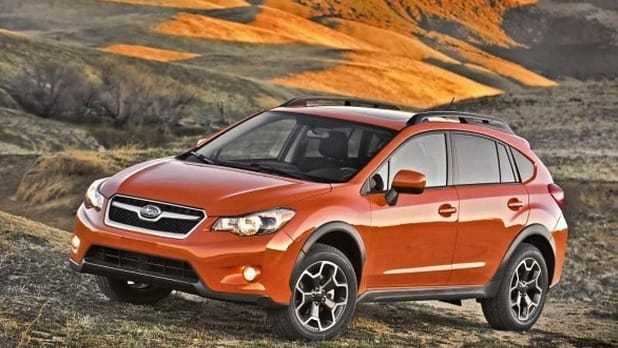Electric car myth: Electric cars are no more environmentally friendly than combustion engines

‘Electric cars are not really environmentally friendly.’ This myth is heard time and time again – but it is simply not true.
The fact is: over its entire lifetime, an electric car produces significantly less CO₂ than a petrol or diesel car. Even if some of the electricity comes from fossil fuel sources, the CO₂ footprint remains 30 to 50 per cent lower on average. In Switzerland, around three quarters of electricity comes from renewable energies such as water, sun and wind – so your electric car runs almost completely emission-free here.
And anyone who decides to buy a used electric car in Switzerland is doing the environment a double favour: the battery and the vehicle have already been produced, so the so-called ‘CO₂ backpack’ has already been reduced. This means that a used electric car is often the most sustainable and climate-friendly way to drive today.
What we will look at in this chapter:
Myth 7: Electric cars are not more environmentally friendly.
Fossil fuel electricity vs. electricity from renewable energies
Summary: Electric cars are more environmentally friendly than combustion engines
Myth 7: Electric cars are not more environmentally friendly.
In short:
- False. Electric cars produce significantly less CO₂ over their entire lifetime than petrol or diesel cars.
- Even if the electricity comes from fossil fuels, the carbon footprint remains 30–50% lower on average.
- Petrol and diesel not only pollute the environment when driven, but also during extraction, refining and transport.
- Renewable energies or the purchase of a used electric car can further improve the environmental balance.
Discover used electric cars from Gowago
Are electric cars really more environmentally friendly?
Yes – significantly so.
Don't let anyone tell you otherwise. Studies by ETH Zurich and the European Commission show that, over their entire lifetime, electric cars emit between a third and half less CO₂ than combustion engines. And this calculation takes into account the manufacture of the battery and the car – so nothing is left out!
Manufacturing vs. use of an electric car
It is often criticised that the production of the battery and the car itself is energy-intensive and causes a ‘CO₂ backpack’.
It is true that an electric car causes more CO₂ during production than a petrol or diesel car due to its battery. However, the higher environmental impact is already offset after a few years of driving.
A mid-range electric car offsets its CO₂ backpack after 2 to 3 years on average. This is because while combustion engines cause constant emissions from production to use, electric cars remain clean. Always.
After production, an electric car is more climate-friendly for decades, and with every kilometre driven, the lead over combustion engines grows.
Electric cars that have already worked off their CO2 backpack.
Fossil fuel electricity vs. electricity from renewable energies
Even if an electric car is charged with electricity from coal or gas power plants, it is still more efficient. This is because an electric car uses over 70% of the energy it consumes for propulsion. In a combustion engine, 70% of the energy is lost as useless heat.
In Switzerland, the advantage of an electric car is even greater, as around 75% of our electricity comes from renewable energies, i.e. solar, hydro and wind power. This means that your electric car runs almost completely emission-free in Switzerland.
Game, set and match for a used electric car in Switzerland
So when you buy a used electric car in Switzerland, you reduce your carbon footprint threefold compared to a used combustion engine car.
The energy-intensive battery production and manufacture of the electric car is already behind you and has already been offset.
Electricity in Switzerland comes mainly from renewable energies. This means that less or no CO₂ is emitted when you drive your electric car.
While driving, your electric car also remains clean and does not emit any pollutants into the air.
With Gowago, you drive a better used electric car
We are fed up with half-truths and a lack of transparency when it comes to used cars – especially used electric cars. That's why we give you full transparency. With a Gowago Certified Pre-Owned Electric Car, you ALWAYS get a tested car with a battery certificate and at least a 12-month warranty. The battery and drive system come with a minimum 3-year warranty on exclusive offers. Wow.
Discover Gowago Certified Pre-Owned Electric Cars
Summary: Electric cars are more environmentally friendly than combustion engines
Electric cars are not perfect and will not solve global warming on their own. However, as they are more sustainable and efficient than combustion engines, they are part of the bigger picture. Although the efficiency of diesel and petrol cars has improved significantly in recent years, the combustion engine is unlikely to develop much further.
However, we are still in the early stages with electric cars: the potential to make them even more efficient, even more climate-friendly and even better is enormous. You only have to look at how e-mobility has developed over the last five years. So anyone who thinks that electric cars are not more environmentally friendly is confusing preconceptions with facts.
Let's debunk the other myths! Let's Go.
That was just one of many myths surrounding used electric cars.
There are several other preconceptions that persist – but have little to do with the facts. Discover the other myths now and find out why a used electric car is often the better choice.
To the overview of electric car myths


